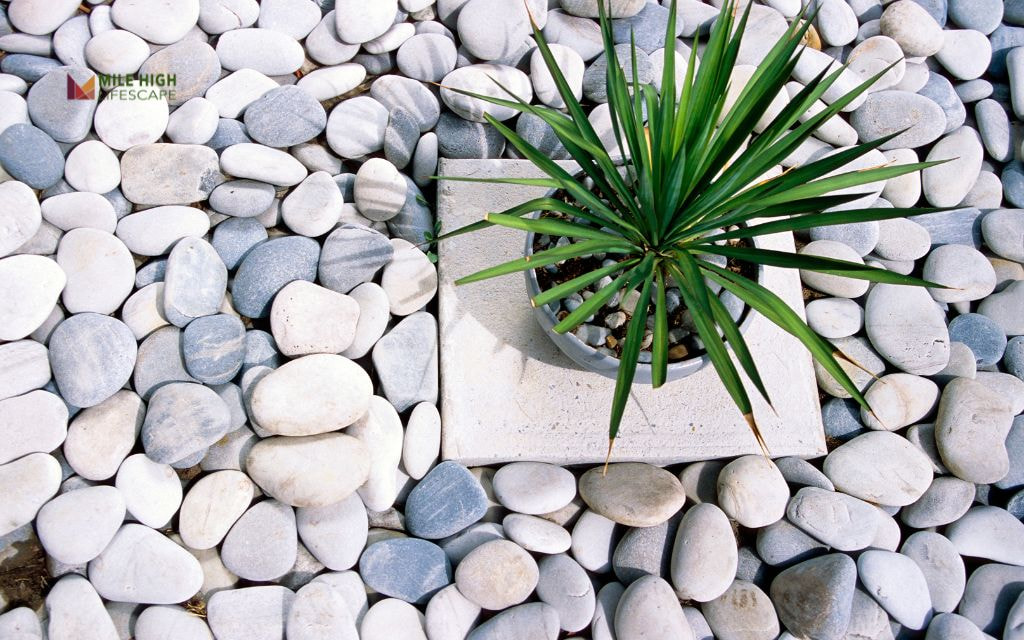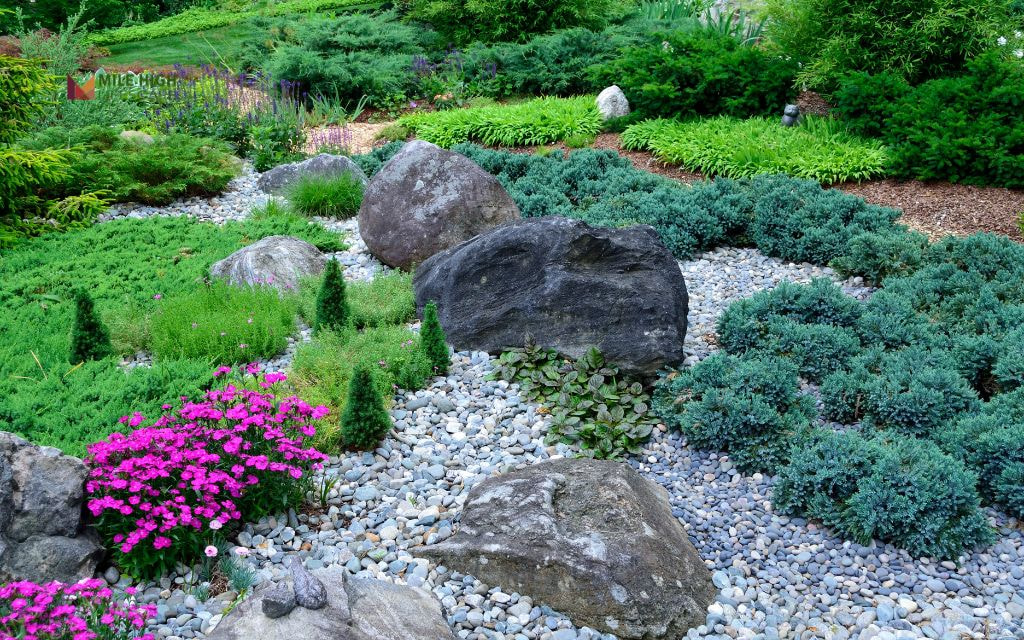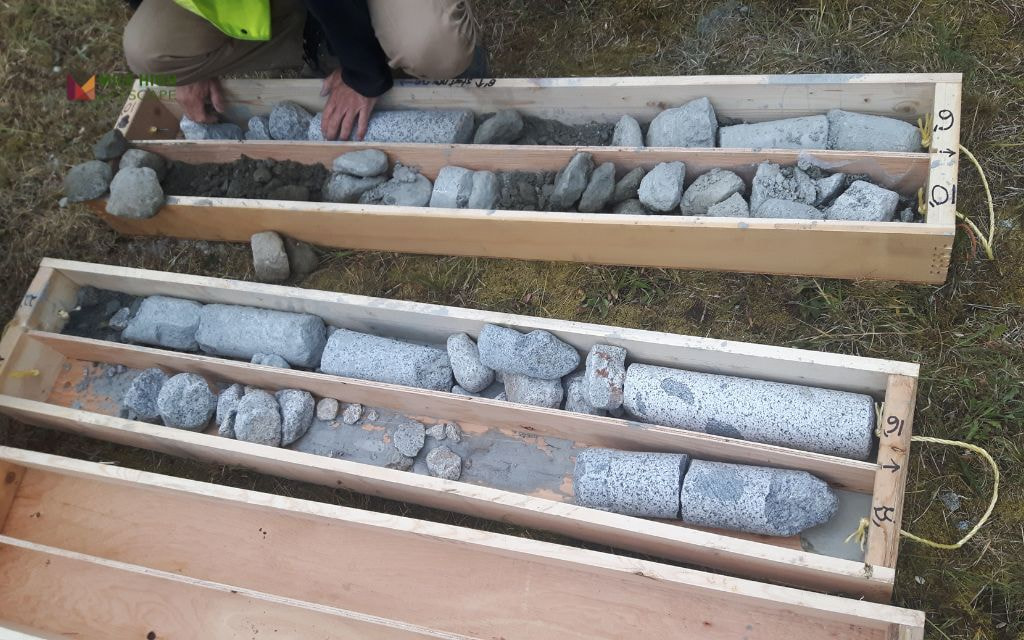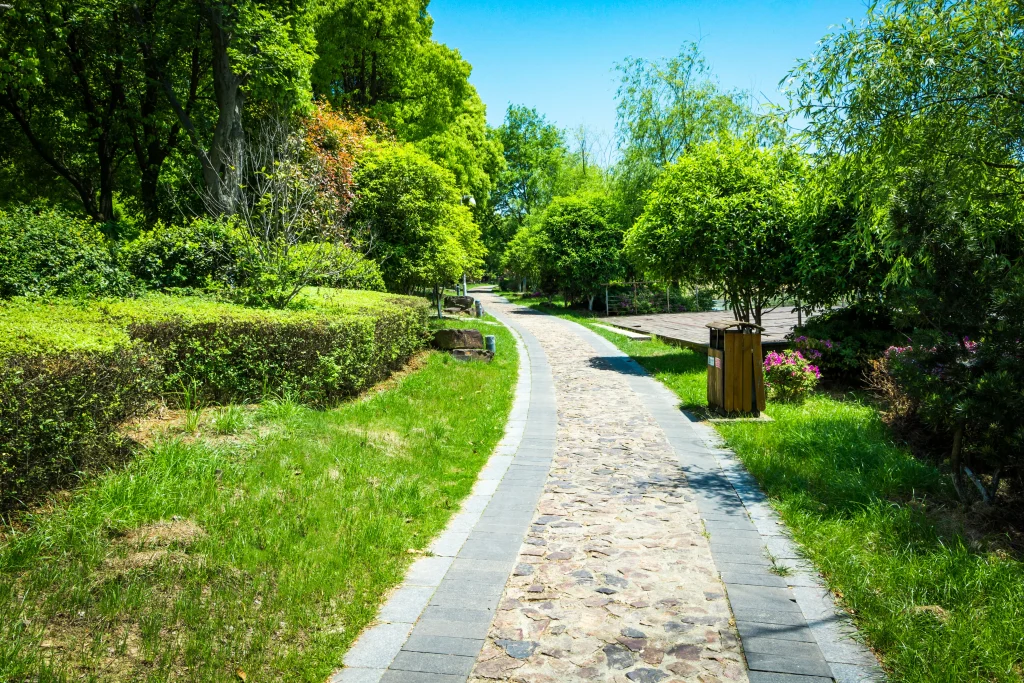How much does it cost for landscaping rocks in Denver? Most homeowners pay between $50 to $200 per ton for materials, with total project costs ranging from $300 to $2,500 depending on rock type, area size, and installation complexity.
The cost of landscaping rocks varies significantly based on material choice, project scope, and local Denver market conditions. Understanding these costs helps you budget effectively for your outdoor transformation project.
This comprehensive guide examines material costs, installation expenses, and regional pricing factors specific to Denver homeowners. We break down expenses by rock type, project size, and installation method to help you make informed decisions for your landscape investment.
Average Costs of Landscaping Rocks in Denver
Local suppliers price materials by the ton, with costs varying based on rock type, quality, and seasonal demand.
| Rock Type | Price Range (per ton) | Best Uses | Key Features |
| Pea Gravel | $40 – $80 | Walkways, between stepping stones | Small, rounded, stays in place |
| Crushed Granite | $50 – $120 | Driveways, stable pathways | Angular, compacts well, various colors |
| River Rock | $60 – $150 | Decorative beds, dry creeks | Smooth, polished, premium appearance |
| Lava Rock | $70 – $130 | Modern designs, drainage areas | Lightweight, porous, unique texture |
| Marble Chips | $80 – $200 | Small accent areas | Bright white, luxury option |
| Large Boulders | $100+ per piece | Focal points, retaining walls | Statement pieces, functional barriers |
Notes:
- Spring demand increases prices by 10-20%
- Local quarries offer bulk discounts
- Delivery adds $50-$150 depending on location
- Transportation distance affects final cost
The most popular choices for Denver homeowners are river rock for visual appeal and crushed granite for functional areas. Pea gravel provides the best value for large coverage areas, while boulders create dramatic focal points worth the premium investment.

How Much Are Large Rocks for Landscaping?
Large rocks and boulders use different pricing than standard landscaping materials. How much are large rocks for landscaping depends on size, weight, and transportation needs rather than per-ton calculations.
Individual boulders cost $100 to $800 each, with exceptional pieces reaching $1,500 or more.
Weight drives pricing since most large rocks weigh 500 to 2,000 pounds. Local Colorado sandstone and granite command higher prices due to their regional appeal.
| Rock Size | Weight Range | Price Range | Transportation Method | Best Uses |
| Small Accent | 50 – 200 lbs | $100 – $250 | Standard delivery truck | Garden borders, small focal points |
| Medium Boulder | 200 – 800 lbs | $250 – $500 | Forklift or small crane | Retaining walls, property markers |
| Large Boulder | 800 – 1,500 lbs | $500 – $800 | Crane placement required | Major focal points, privacy screens |
| XL Statement | 1,500+ lbs | $800 – $1,500+ | Specialized equipment | Landscape centerpieces, natural barriers |
Additional Costs to Consider:
- Crane placement: $200–$600
- Site access preparation: $100–$300
- Professional positioning: $150–$400
Transportation represents a major cost factor. Standard trucks handle rocks up to 800 pounds. Heavier boulders need specialized equipment, adding significant expense to your project.
How Much Landscape Rock Cost Per Square Foot Cost?
Landscape rock cost per square foot ranges from $1 to $6 depending on rock type, coverage depth, and whether you hire professionals. This pricing method helps you budget for specific areas more easily than buying by the ton.
Coverage depth affects your total cost. Most installations need 2 to 4 inches of rock depth. Smaller stones like pea gravel work with 2-inch coverage, while larger river rocks need 3 to 4 inches for proper appearance.
| Rock Type | Material Cost per Sq Ft | Installation Cost per Sq Ft | Total Cost per Sq Ft | Recommended Depth |
| Pea Gravel | $0.50 – $1.25 | $1.50 – $2.50 | $2.00 – $3.75 | 2 – 3 inches |
| Crushed Granite | $0.75 – $1.50 | $1.50 – $2.50 | $2.25 – $4.00 | 2 – 3 inches |
| River Rock | $1.00 – $2.50 | $1.50 – $3.50 | $2.50 – $6.00 | 3 – 4 inches |
| Lava Rock | $1.25 – $2.25 | $1.50 – $3.00 | $2.75 – $5.25 | 3 – 4 inches |
| Marble Chips | $1.50–$3.50 | $2.00–$3.50 | $3.50–$7.00 | 2–3 inches |
Cost Example: For a 500-square-foot area with river rock at 3-inch depth:
- Material: $500–$1,250
- Installation: $750–$1,750
- Total: $1,250–$3,000
Professional installation includes site preparation, landscape fabric, and proper rock placement. DIY installation saves $1.50 to $3.50 per square foot but requires proper tools and techniques for lasting results.

How Much Rock Do You Need?
How much rock do I need for landscaping depends on your area size and coverage depth. Accurate calculations prevent over-ordering or running short during installation.
Measuring Your Project Area
Start by measuring length and width in feet, then multiply for square footage. For irregular shapes, break the area into rectangles and add them together. Always order 10% extra for waste and future touch-ups.
Determining coverage depth:
Most landscaping projects use these standard depths:
- Pea gravel and small stones: 2–3 inches
- River rock and medium stones: 3–4 inches
- Large decorative rocks: 4–6 inches
Simple calculation formula:
- Step 1: Square footage × depth (in feet) = cubic feet
- Step 2: Cubic feet ÷ 27 = cubic yards
- Step 3: Cubic yards × weight per yard = total tons needed
Rock weight by type:
Different rocks have different weights per cubic yard:
- River rock: 1.5 tons per cubic yard
- Crushed granite: 1.4 tons per cubic yard
- Lava rock: 1.3 tons per cubic yard
- Pea gravel: 1.6 tons per cubic yard
Real Example Calculation
Project: 500 square feet with 3-inch river rock coverage
- Area: 500 sq ft
- Depth: 3 inches = 0.25 feet
- Volume: 500 × 0.25 = 125 cubic feet
- Cubic yards: 125 ÷ 27 = 4.6 cubic yards
- Total weight: 4.6 × 1.5 = 7 tons needed
- Cost estimate: 7 tons × $100 = $700 (plus delivery)
Landscaping Rock Installation Costs in Denver
Professional installation involves multiple steps beyond simply placing rocks. How much does it cost to have landscape rock installed includes site preparation, materials, and finishing work that ensures long-lasting results.
Installation costs vary based on project size, terrain difficulty, and access to your property. DIY installation eliminates labor costs but requires proper tools and technique for professional results.
| Installation Component | Cost Range | What’s Included | DIY Savings Potential |
| Site Preparation | $0.50–$1.50 per sq ft | Grass removal, grading, debris clearing | High – basic tools needed |
| Landscape Fabric | $0.50–$1.25 per sq ft | Weed barrier installation | Medium – requires precision |
| Rock Delivery | $50–$150 flat fee | Transportation to your property | None – delivery required |
| Rock Spreading | $1.50–$3.50 per sq ft | Professional placement and leveling | High – labor intensive |
| Edging Installation | $3–$6 per linear foot | Steel/aluminum borders for clean lines | Medium – needs proper tools |
Total Professional Installation: $2.50–$7.25 per square foot (excluding materials)
Cost Factors That Increase Pricing
Terrain Challenges:
- Steep slopes: +25–50% labor costs
- Rocky soil: +$0.25–$0.75 per sq ft
- Tight access areas: +$0.50–$1.00 per sq ft
Project Size Impact:
- Small areas (under 200 sq ft): Higher per-sq-ft costs
- Large areas (over 1,000 sq ft): Lower per-sq-ft costs
- Complex designs: +$1.00–$2.00 per sq ft
Professional vs. DIY Installation
Professional Benefits:
- Warranty coverage on workmanship
- Proper drainage and grading
- Long-term stability and appearance
- Time savings (2-3 days vs. 1-2 weeks DIY)
DIY Considerations:
- Requires wheelbarrow, rake, and compacting tools
- Physical demands increase with project size
- Risk of improper drainage or settling
- No warranty on installation quality

Money-Saving Tips for Landscaping Rock Projects
Strategic planning reduces the cost of landscaping rocks without sacrificing quality or visual appeal. Smart purchasing and installation decisions can save hundreds of dollars on typical Denver projects.
Smart Purchasing Strategies
- Buy in bulk or full pallets: Volume discounts range from 10-20% for orders exceeding minimum quantities
- Coordinate with neighbors: Combine orders to reach bulk pricing thresholds and split delivery costs
- Shop during off-season: Fall and winter orders often receive 15-25% discounted rates as suppliers clear inventory
- Compare local quarries vs. retail centers: Direct quarry purchases typically cost 20-30% less than garden centers
Design Cost Control
- Mix expensive and economical rocks: Use premium accent rocks sparingly with base materials like crushed granite
- Focus spending on visible areas: Invest in quality materials for front yards and entertainment spaces
- Consider recycled or reclaimed materials: Salvaged rocks from construction sites offer 30-50% savings when available
- Use rocks strategically: Replace expensive hardscape walls with natural boulder placement
Long-Term Value Optimization
- Invest in quality landscape fabric – Prevents costly weed problems and rock replacement needs
- Choose durable edging materials – Steel or aluminum edging lasts 15-20 years vs. 3-5 years for plastic
- Plan for proper drainage: Prevent erosion issues that require expensive repairs later
Conclusion
Understanding the cost of landscaping rocks components enables informed decision-making for your Denver landscape transformation. Material selection, installation method, and project scope all significantly impact final costs.
Local supplier relationships and bulk purchasing provide the best value for most homeowners. Combining professional installation with DIY site preparation optimizes both cost and quality outcomes.
Rock landscaping delivers exceptional long-term value through minimal maintenance requirements and permanent installation. Initial investment exceeds traditional groundcover but provides decades of beauty without replacement costs.
If you’re finding rock landscapers near me in Denver, Mile High Lifescape offers custom estimates and expert project planning for Denver-area homeowners.
Our experience with local suppliers, installation techniques, and regional requirements ensures your rock landscaping project achieves both budgetary and aesthetic goals.
Frequently Asked Questions (FAQs)
What is the cheapest rock to use for landscaping?
Pea gravel offers the most economical option at $40 to $80 per ton. This small, rounded material works well for pathways and basic groundcover applications while providing excellent drainage.
How much does 1 ton of rocks cover?
One ton of landscaping rock typically covers 100 to 120 square feet at 2-inch depth, or 60 to 80 square feet at 3-inch depth. Coverage varies by rock size and density.
How much is 1 yard of landscape rocks?
Landscape rock costs $60 to $200 per cubic yard in Denver, depending on material type. River rock averages $90 to $150 per yard, while crushed granite costs $60 to $120 per yard.
How much does a truck bed full of rocks cost?
A standard pickup truck holds approximately 1 to 1.5 cubic yards of rock, costing $60 to $300 depending on material choice. Factor in delivery fees if purchasing from suppliers without pickup options.
Where can I find free landscape rocks?
Check construction sites (with permission), Craigslist ads from homeowners removing rocks, or public land areas where rock collection is permitted. Always verify legal collection rights before removing materials.

